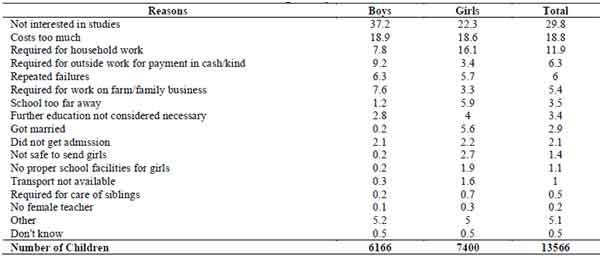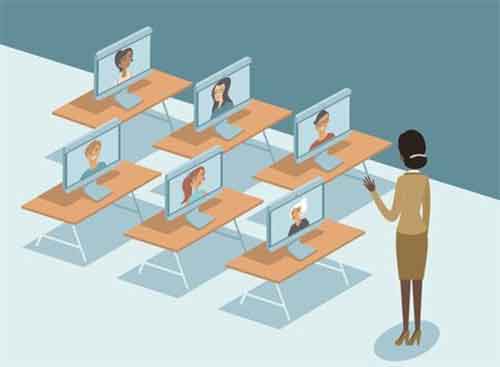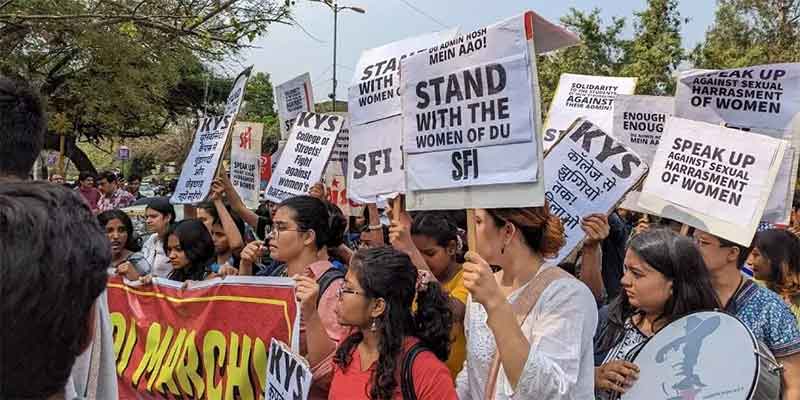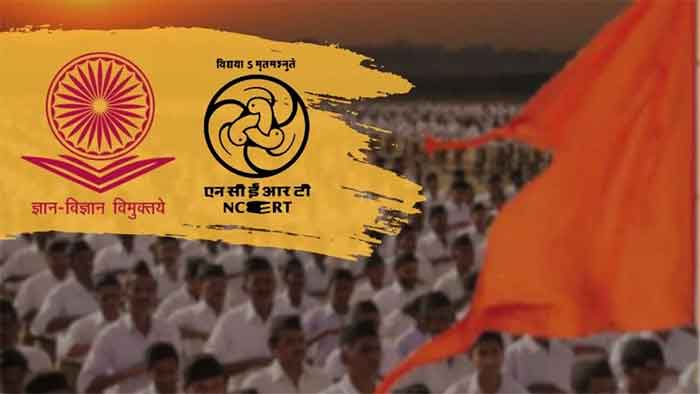
Education has always been considered as one of the most important weapons for improving the living standards of society and help the nation progress. Though it is seen as a great equalizer, inequality in education leads to the reinforcement of social and economic inequalities, thus, widening the gap and not progressing the society as a whole.
As the Oxfam International report highlights, schooling that is segregated by class, wealth, ethnicity, gender, or other signifiers of privilege and exclusion, cements inequality. India’s education system is marred by gross inequalities in access, completion, and quality. Class, linguistic background, gender, ethnicity, and place of birth all have an impact on the educational experience children have in India.
Interaction with Prof Anita Rampal made us realize the level of inferiority faced by the students who are shown to be inequal in their early schooling days. For example, in government schools and various private schools as well students are usually clubbed as bright performers and poor performers from as early as 1st grade. They are many times segregated into different sections and treated differently. This is bound to decrease the interest in students towards studies as nobody would want to be treated inferiorly especially in the early part of their lives.
According to a research report published in the Journal of Research & Method in Education, an analysis of the National Family Health Survey indicated that almost 30% of school dropouts are due to lack of interest in studies.
Table: Reasons for dropping school

Now, it can be attributed to the household for not being supportive or the student’s inherent dislike towards learning, but it is also the responsibility of the school and the education system to create an atmosphere that makes learning fun for school kids. The curriculum and teaching methodology needs to adapt to suit the need of students and not students being forced to adapt themselves to the prevalent method of teaching across states.
Also, it is not certain that the prevalent methods adopted in schools are the best measure for assessing the potential of students. According to Prof Anita Rampal, the curriculum needs to be innovated and should include material that can be relatable to a student to help him explain certain concepts, rather than just expecting memorizing texts and facts and making them learn through situations in which they have never experienced in life. For example – it has been noticed students from lower strata do possess an open mind and in various instances have shown the ability to grasp concepts well, when conveyed through situations that have been practically witnessed by them.
Thus, there is no single way to assess the ability of a student and schools should do away with creating hierarchies and treat every student equally and focus on increasing the collective gain of the class. This broader point is at times missed by schools at times and in various instances, it has been noticed that students not performing well are expelled/sent to open schools so that the school can maintain its reputation for personal gains. These students hence, naturally lose interest in education and look for other opportunities. This is especially troublesome for students from a poor background as education is supposed to be a stepping stone to success for them
Prof Anita Rampal shed some light on her stint at Jamia Islamia where she had taken a project to improve teacher education. Teacher Education is the most essential element to impart quality education to students as it is they who maintain the direct touchpoint with them. A subject like science cannot be taught just through books. There need to be experiments and live demonstrations so that a student gets complete knowledge of the phenomena, but unfortunately, many of the teachers are not equipped with the required training to impart knowledge in such a way. She developed her curriculum and examination during her stint. It was tough to tweak the approach of the teachers as they had adequate knowledge and were used to a certain style of teaching, but the change was noticed when learning was imparted through doing and not just lectures. Such innovative methods are necessary to educate students in a more relatable manner.
An interesting move being propagated by a lot of activists is getting rid of the various boards and adopt One Nation One Board to maintain equality across the states concerning curriculum and learnings imparted to students. Countries like Finland have shown the success of such models. Finland’s system does not have any standardized assessments. There is only a National Matriculation Exam after upper secondary and that too is voluntary. However, according to Prof Anita Rampal, such a system might bring equality in other countries but in an extremely diverse country like India, such a system might not be good for the students. It is necessary for students to know about the heritage and culture of the place they study in and hence, it is important for various boards of education to exist.
An important change that needs to come about in the system is the reliance on marks especially in the junior stages, which brings about the comparison. Comparison causes some to be superior and others to be inferior. Assessments need not show what’s the right/ wrong answer but rather concentrate only on the process and thinking and try to improve it through what is more comfortable for the child. Schools need to realize they have a social responsibility towards society and the government also needs to encourage systems where the scope of comparison is reduced at least the junior levels. This can be done through an improved curriculum or strict rules against comparison basis marks. The focus needs to be progressive collectively, rather than concentrating more on a select number of students just because they excel in the assessment process being adopted, which might not even be reliable.
References :
OXfam. (2019). The Power of Education to Fight Inequality . Oxfam.
Sateesh Gouda, T. S. (2014). Factors Leading to School Dropouts in India: An Analysis of National Family. International Journal of Research & Method in Education.
Bharat Mohta is a 2nd year MBA Student at the Indian Institute of Management Ahmedabad. He has completed his graduation from Shri Ram College of Commerce, Delhi.
SIGN UP FOR COUNTERCURRENTS DAILY NEWSLETTER















































